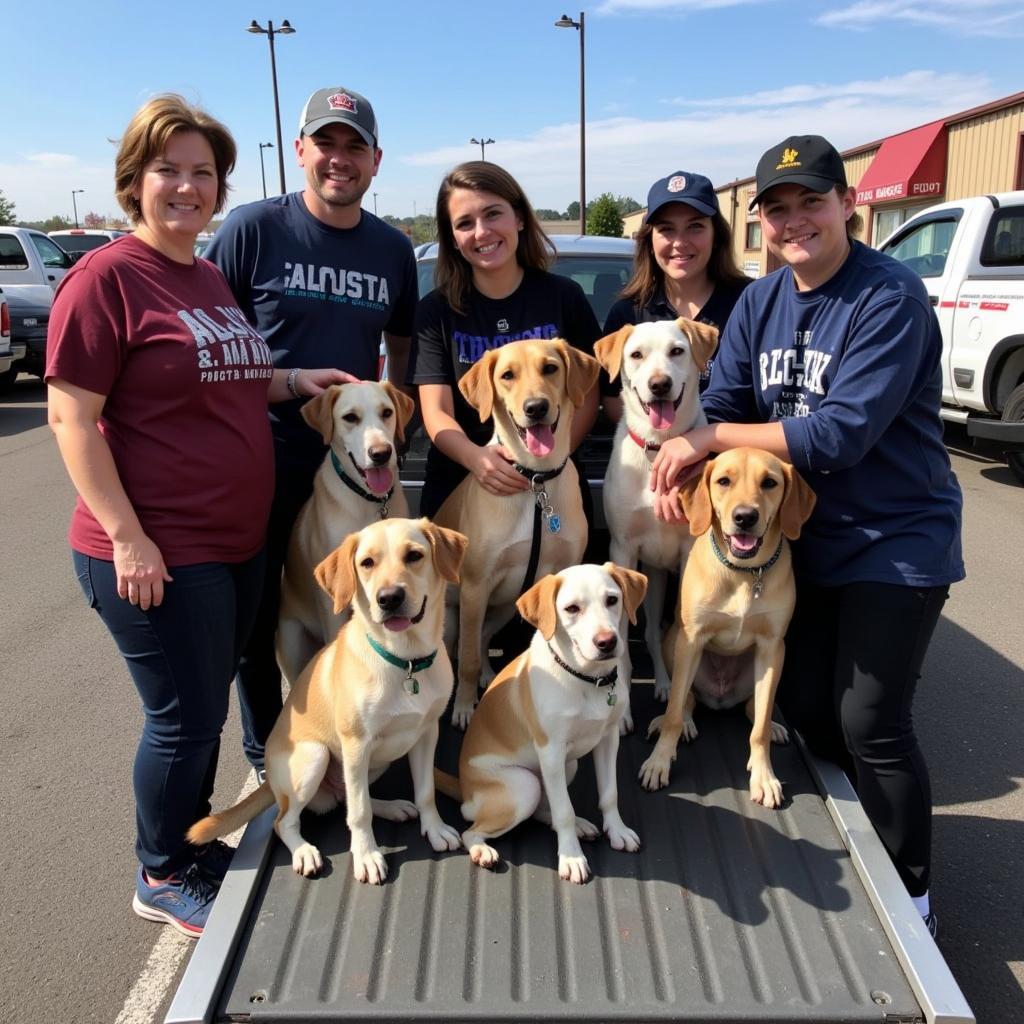“Is Humane Society No Kill?” is a question many animal lovers ask as they seek the best way to help animals in need. Understanding what “no-kill” truly means and how it applies to humane societies is crucial for making informed decisions about animal welfare. Let’s explore the complexities of this concept and shed light on the efforts of humane societies in creating a more compassionate world for animals.
Deciphering “No-Kill”: A Closer Look
The term “no-kill” doesn’t necessarily mean that a shelter never euthanizes animals. Instead, it typically signifies a commitment to saving all healthy and treatable animals. Most no-kill shelters strive to maintain a 90% or higher save rate, meaning that at least 9 out of 10 animals that enter their doors are rehabilitated, rehomed, or otherwise given a chance at a happy life.
The Reality of Limited Resources
Humane societies, often operating as non-profit organizations, face the daunting task of providing for animals in need with limited resources. They rely heavily on donations, grants, and the dedication of staff and volunteers. The influx of animals, often exceeding the capacity for care, presents a heartbreaking dilemma.
When Euthanasia Becomes a Last Resort
While the goal is always to save as many animals as possible, certain circumstances may lead to the difficult decision of humane euthanasia. These circumstances may include:
- Untreatable medical conditions: Animals suffering from severe injuries or illnesses with a poor prognosis may be euthanized to prevent further pain and suffering.
- Behavioral issues posing safety risks: Animals displaying extreme aggression or dangerous behaviors that cannot be effectively managed may be considered for euthanasia as a last resort to ensure public safety.
The Humane Society’s Multifaceted Approach
Humane societies are dedicated to promoting animal welfare through a variety of initiatives, including:
- Adoption services: Finding loving forever homes for animals is a primary focus of humane societies.
- Spay and neuter programs: By controlling animal populations, these programs help reduce the number of unwanted pets entering shelters.
- Community outreach and education: Humane societies actively engage with the public, promoting responsible pet ownership, animal welfare awareness, and the importance of adoption.
Partnering for a Brighter Future
Addressing the complex issue of animal homelessness requires a collaborative effort. Humane societies work closely with animal control agencies, rescue organizations, and dedicated volunteers to maximize their impact.
 Animal Rescue Partnership
Animal Rescue Partnership
What You Can Do to Make a Difference
Every individual can play a part in creating a more humane world for animals. Here are a few ways to contribute:
- Adopt, don’t shop: Choosing to adopt a pet from a shelter not only gives an animal a second chance but also helps reduce the demand for commercially bred animals.
- Spay or neuter your pets: This simple act is one of the most effective ways to combat pet overpopulation.
- Support your local humane society: Donations, volunteering, and spreading awareness are invaluable contributions to the well-being of animals in need.
Conclusion
The term “no-kill” represents an aspiration towards a future where every healthy and treatable animal is given a chance to live a full life. Humane societies, despite facing significant challenges, work tirelessly to uphold this ideal. By understanding the complexities of animal welfare and actively supporting organizations dedicated to this cause, we can collectively strive for a world where every animal is treated with compassion and respect. Remember, the journey towards a no-kill nation requires a collective effort, fueled by empathy, action, and a shared commitment to creating a brighter future for all animals.
FAQ
1. What should I do if I find a lost or stray animal?
2. How can I prepare my pet for adoption?
3. What are some common misconceptions about humane societies?
4. How can I volunteer at my local humane society?
5. Is it better to adopt an older animal or a younger one?
For more information and resources on animal welfare, please visit our society archive.
To learn more about the history of humane societies and their impact, explore our dead poets society internet archive.
Need help? Contact us at:
- Hotline: 02043854663
- Email: [email protected]
- Address: Khu 34, Bắc Giang, 260000, Việt Nam.
We are available 24/7 to support you.